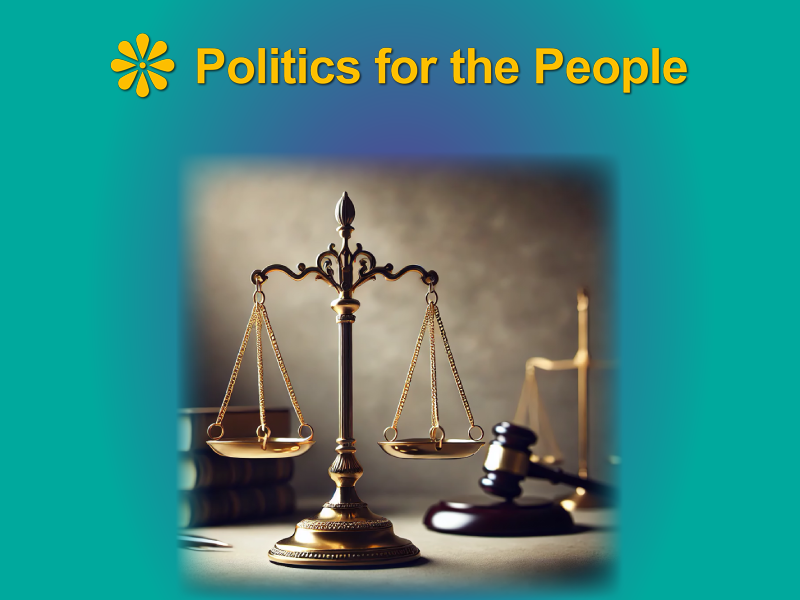Introduction
Freedom and responsibility are the twin pillars of an ideal society. When these two principles coexist harmoniously, they create a stable and flourishing community. However, when the balance tilts too far in favour of liberty without responsibility, chaos ensues. This article delves into the importance of keeping this delicate balance and the repercussions of prioritizing freedom over responsibility.
The Delusion of Unrestricted Liberty
Understanding Absolute Autonomy
Liberty is a cherished and fundamental value in any society. It allows individuals to express themselves, make choices, and pursue happiness. However, absolute freedom, devoid of responsibility, can lead individuals down a treacherous path. Unbridled liberty blurs the lines between right and wrong, causing individuals to act without considering the consequences of their actions. This lack of accountability can undermine the very foundations of order and civility that hold society together.
The Dangers of Unchecked Autonomy

Liberty is an essential part of a thriving society, but it must be tempered with responsibility and accountability to keep social harmony. When actions go unchecked, chaos can ensue, as individuals prioritize personal desires over collective well-being. Unrestrained liberty allows for behaviours that may harm others, disrupt societal norms, and weaken the foundations of community trust.
For example, if everyone were free to act solely on personal whims—ignoring laws, ethical standards, or the rights of others—society would devolve into disorder. Laws and norms, which provide structure and balance, would lose their authority. This could manifest in increased crime, as individuals exploit the absence of consequences to help themselves, leading to theft, violence, or fraud. In such an environment, fear and mistrust would replace cooperation and mutual respect, eroding the bonds that hold communities together.
Moreover, without a sense of responsibility toward others, individuals may focus exclusively on personal gratification, neglecting the needs of their neighbours, families, or society at large. This self-centred behaviour can result in social fragmentation, where people become isolated and disconnected from the shared goals and values that define a healthy community.
For instance, unchecked environmental exploitation for personal gain could lead to ecological degradation, affecting the livelihoods and well-being of future generations. Similarly, in workplaces, unchecked liberty without accountability can foster toxic cultures, where selfishness and exploitation flourish at the expense of collaboration and fairness.
Unrestrained liberty also threatens economic stability and equity. If individuals or corporations run without accountability, they may engage in exploitative practices such as tax evasion, labor abuses, or environmental harm. These actions disproportionately affect marginalized communities, deepening inequality and undermining social cohesion.
Taking responsibility ensures that liberty does not come at the cost of others. A balance must be struck where individuals are free to pursue their goals but are also held accountable for how their actions affect the collective good. This balance can be achieved by fostering ethical awareness, civic education, and a strong legal framework that emphasizes both rights and responsibilities.
True liberty exists not in the absence of rules but in the presence of mutual respect, accountability, and shared values. When individuals take responsibility for their actions and consider the impact on others, they contribute to a society where liberty is not only enjoyed but also preserved for future generations.
The Erosion of Social Bonds
Responsibility is the glue that holds a society together. It compels individuals to consider how their actions affect others, fostering choices that promote harmony and well-being. When liberty is divorced from responsibility, the fabric of social bonds begins to unravel.
The Rise of Self-Interest
In a society where self-interest and personal gratification take precedence, trust, empathy, and cooperation erode. Communities become fragmented, and the collective pursuit of common goals gives way to anarchy. The erosion of these social bonds weakens the community’s ability to function effectively and meet the needs of its members. Without the checks and balances provided by responsible behaviour, societal cohesion diminishes, making it difficult to address shared challenges and achieve shared goals.
Apathy and Neglect
Liberty without responsibility breeds apathy and neglect. If individuals are not held accountable for their actions, they may neglect their duties to others and the environment.
Manifestations of Neglect
This neglect can take various forms, such as not fulfilling civic responsibilities, disregarding ethical principles, or exploiting resources without regard for the consequences. Over time, such neglect accumulates, leading to societal disarray and environmental degradation. For example, neglecting environmental responsibilities can result in pollution and climate change, which have far-reaching effects on public health and the planet’s sustainability. Similarly, neglecting civic duties, such as voting and community involvement, can lead to weakened democratic processes and diminished public trust in institutions.
The Vacuum of Leadership
In the absence of responsibility and accountability, a vacuum of leadership appears, leaving societies, organizations, and communities vulnerable to instability and decline. Effective leadership is built on the foundation of ethical responsibility, where leaders in government, institutions, and communities prioritize the welfare of those they serve. When leaders do not uphold this duty, the resulting void can lead to mismanagement, erosion of trust, and systemic failures.
This vacuum often manifests as a lack of direction, where leaders neglect their roles in providing vision, guidance, and accountability. In such cases, decisions are either delayed or made without proper consideration of their broader impacts, leaving communities or institutions adrift. Without strong leadership, critical challenges—such as addressing inequality, climate change, or economic instability—may go unaddressed, worsening societal issues and fostering disillusionment among the public.
Moreover, ineffective leadership often enables self-serving behaviours, where individuals in positions of power prioritize personal gain over collective welfare. This dynamic can perpetuate corruption, cronyism, and a culture of impunity, where the powerful evade accountability while those they lead bear the consequences of poor governance. For example, in government, a leadership vacuum might result in poorly implemented policies, underfunded public services, or a lack of action in response to crises, further alienating citizens from political processes.
In communities and organizations, the absence of responsible leadership weakens the social fabric, leading to division, low morale, and reduced collaboration. Employees in workplaces may feel disengaged when leaders do not provide clear direction or acknowledge their contributions, while communities may experience fragmentation when local leaders neglect the needs and aspirations of their constituents.
To fill this void, leaders must embody qualities such as integrity, empathy, and accountability. They must actively engage with those they serve, listen to their concerns, and make decisions that balance immediate needs with long-term goals. Transparent communication, fair decision-making, and a commitment to ethical governance are essential to restoring trust and strengthening institutions.
Leadership is not merely about holding a title or position—it is about showing a commitment to service, fostering unity, and driving progress. In addressing the vacuum of leadership, society must prioritize cultivating leaders who understand their responsibility to act in the best interest of all, ensuring stability and progress for future generations.
Consequences of Self-Serving Leadership
Unchecked liberty allows leaders to succumb to self-serving interests, neglecting their duty to uphold justice, fairness, and social welfare. This vacuum of leadership can give rise to authoritarianism, corruption, and exploitation, perpetuating a cycle of chaos and inequality.
When leaders prioritize personal or political gain over the public good, they erode public trust and undermine the legitimacy of their institutions. Effective leadership is crucial for keeping the balance between liberty and responsibility, ensuring that societal needs are met, and justice is upheld.
In contrast, responsible leaders set examples for others, fostering a culture of accountability and ethical behaviour.
Conclusion
Liberty without responsibility is a double-edged sword that can unleash chaos upon society. To foster a thriving society, individuals, communities, and institutions must understand the symbiotic relationship between freedom and responsibility.
Embracing liberty with a strong sense of responsibility ensures a society that thrives on order, empathy, and collective well-being. Through mindful actions, mutual respect, and a shared commitment to the common good, we can safeguard our societies from the perils of chaos and create a world that cherishes both liberty and responsibility.
Call to Action
Reflect on your role in upholding the balance between liberty and responsibility. Share your thoughts on how we can collectively build a more responsible and free society. Your actions and perspectives can contribute to creating a more balanced and harmonious community.
Question for Readers
How do you keep the balance between liberty and responsibility in your daily life? What practices or principles guide you in ensuring that your liberty does not impinge on the rights and well-being of others?
Share This Article
If you found this article insightful, please share it with your contacts and on social media to spread awareness about the importance of balancing freedom and responsibility in society.
Reference:
The Common Good: https://plato.stanford.edu/entries/common-good/
The Security Versus Freedom Dilemma. An Empirical Study of the Spanish Case: https://www.frontiersin.org/articles/10.3389/fsoc.2022.774485/full
Priorities and human rights: https://www.tandfonline.com/doi/full/10.1080/13642987.2018.1562917
The continuing tensions between individual rights and public health: https://www.ncbi.nlm.nih.gov/pmc/articles/PMC2267241/
Freedom “to” vs. Freedom “from”: https://www.bu.edu/sph/news/articles/2017/freedom-to-vs-freedom-from/
Homelessness is a Human Rights Issue: https://humanrights.gov.au/our-work/rights-and-freedoms/publications/homelessness-human-rights-issue

